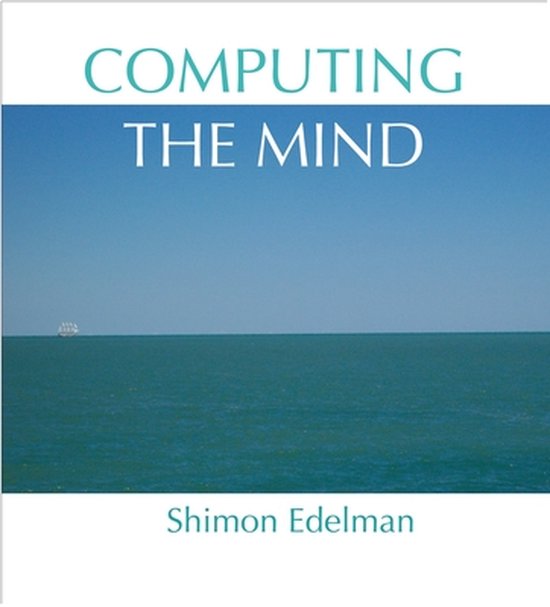De Boeken van Wouter
Computing the Mind
Computing the Mind
Kan beschikbaarheid voor afhalen niet laden
Verzending is beschikbaar op maandag en vrijdag
Meestal verzonden binnen 1–4 dagen na bestelling
4 boeken kopen = 3 betalen
Gratis verzending vanaf €25
Titel: Computing the Mind
Schrijver: Shimon Edelman
Bindingswijze: Hardcover
EAN: 9780195320671
Conditie: Goed
Let op: Hieronder staat een algemene beschrijving van hoe wij onze conditietypes classificeren. Als u een nauwkeuriger beeld wilt of specifieke vragen heeft, stuur ons dan een bericht en we kijken het graag voor u na.
Conditie-omschrijvingen:
- Als Nieuw: Nauwelijks gebruikssporen, bijna als nieuw.
- Goed: Kan lichte gebruikssporen vertonen, zoals wat verkleuring of een naam op de schutbladen, maar doorgaans geen onderstrepingen of aantekeningen in de tekst.
- Redelijk: Boek in redelijke staat. Kan gebruikssporen vertonen, zoals verkleuring, leesvouwen in de rug, onderstrepingen, aantekeningen, lichte vervuiling aan de randen, ezelsoren of een kromme rug.
- Nieuw: Boek is nieuw.
Beschrijving:
In a culmination of humanity's millennia-long quest for self knowledge, the sciences of the mind are now in a position to offer concrete, empirically validated answers to the most fundamental questions about human nature. What does it mean to be a mind? How is the mind related to the brain? How are minds shaped by their embodiment and environment? What are the principles behind cognitive functions such as perception, memory, language, thought, and consciousness? By analyzing the tasks facing any sentient being that is subject to stimulation and a pressure to act, Shimon Edelman identifies computation as the common denominator in the emerging answers to all these questions. Any system composed of elements that exchange signals with each other and occasionally with the rest of the world can be said to be engaged in computation. A brain composed of neurons is one example of a system that computes, and the computations that the neurons collectively carry out constitute the brain's mind. Edelman presents a computational account of the entire spectrum of cognitive phenomena that constitutes the mind. He begins with sentience, and uses examples from visual perception to demonstrate that it must, at its very core, be a type of computation. Throughout his account, Edelman acknowledges the human mind's biological origins. Along the way, he also demystifies traits such as creativity, language, and individual and collective consciousness, and hints at how naturally evolved minds can transcend some of their limitations by moving to computational substrates other than brains. The account that Edelman gives in this book is accessible, yet unified and rigorous, and the big picture he presents is supported by evidence ranging from neurobiology to computer science. The book should be read by anyone seeking a comprehensive and current introduction to cognitive psychology.
Share

